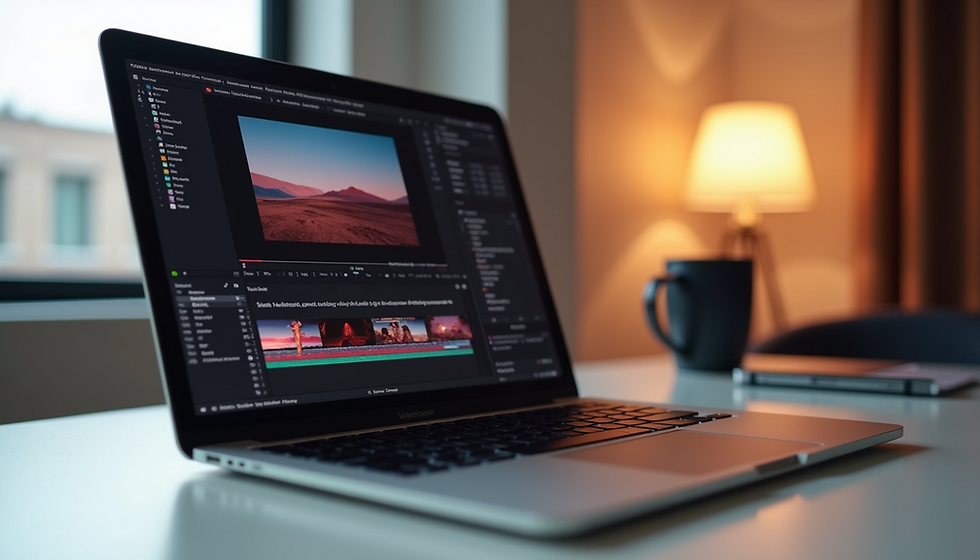Top Editing Tips for Film Students
- romanisneo
- May 21, 2025
- 2 min read
Are you a film student looking to improve your editing skills? Editing is a crucial aspect of filmmaking that can make or break the final product. Whether you're working on a short film, music video, corporate video, or any other type of project, mastering the art of editing is essential. Here are some top editing tips to help you elevate your editing game:

Organize Your Footage: Before you start editing, make sure to organize your footage properly. Create folders for different scenes or shots, label them clearly, and use a naming convention that makes it easy for you to find the footage you need quickly.
Understand the Story: Editing is not just about putting clips together; it's about telling a story. Make sure you understand the story you're trying to tell and how each clip fits into that narrative. Pay attention to the pacing, flow, and emotional impact of each scene.
Master Your Editing Software: Whether you're using Adobe Premiere, Final Cut Pro, or any other editing software, take the time to master its features and shortcuts. The more efficient you are with the tools, the faster and more effectively you can edit your project.
Use Transitions Wisely: Transitions can add depth and continuity to your film, but using too many or the wrong types of transitions can be distracting. Stick to simple cuts or fades unless a more elaborate transition serves a specific purpose in enhancing the storytelling.
Focus on Sound Design: Don't underestimate the importance of sound in editing. Clean up your audio, add music and sound effects where needed, and make sure the audio levels are consistent throughout the project.
Color Correction and Grading: Enhancing the color of your footage can significantly impact the mood and tone of your film. Learn how to color correct and grade your footage to create a cohesive look that enhances the overall visual aesthetic.
Seek Feedback: Don't be afraid to show your work to others and ask for feedback. Getting a fresh perspective can help you identify areas for improvement and make your project stronger.
Practice, Practice, Practice: Like any skill, editing takes time and practice to master. Keep editing regularly, experiment with different techniques, and learn from your mistakes to continue growing as an editor. By following these top editing tips, you can take your editing skills to the next level and create compelling, professional-looking films. Remember, editing is not just about technical proficiency; it's also about creativity and storytelling. Keep honing your craft, and you'll see improvement with each project you tackle.


Comments